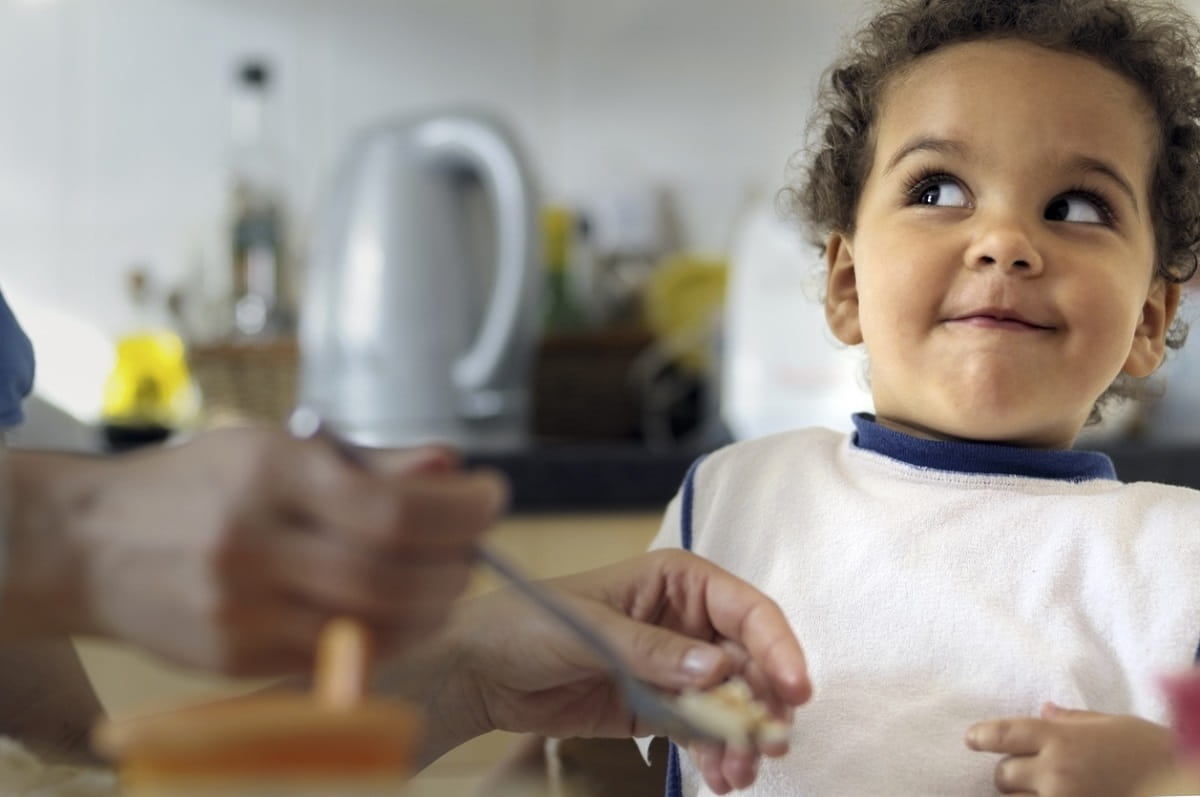Ah, Potty Humor: 9 Things Parents Need to Know About Poo, Pee, and Peals of Laughter

“POOPIE! Poopie, pooopie, poooooooop!”
Ah, yes, the potty talk. For some children, the glory of screaming words like poop, pee, or butt over and over and over seems to give them great joy.
What should parents do about it? Ignore it? Set rules? Laugh right along with them?
At KinderCare, we’ve heard it all. And we’ve got the straight poop on this whole toilet humor business.
1. The Truth Is: You Probably Started It (and that’s a Good Thing)
While a baby is on the changing table, Mom or Dad might say, “Did you pee? Are you wet? I’m going to change your poopie diaper.” This kind of interaction with a baby is absolutely a good thing! When an adult explains what they are doing, they’re helping their infant learn about themselves and the world around them.
2. Between Ages 2 and 3, Poop Jokes Help with Toilet Learning
That early introduction to bathroom language can pay off later. “This kind of language helps children prep for toilet learning,” says Leia Muniz, a Quality & Accreditation Advisor at KinderCare Education. During this stage, bathroom language is a transition tool, aiding children in being independent as they move from diapers to the potty.
Around age two and until children have mastered toileting, Muniz does not recommend correcting potty talk, because intervening may discourage children from using the bathroom or expressing their need to do so.
In fact, while children are learning to use the toilet, you want to encourage them to use language to tell caregivers when they have to use the bathroom. And you want to celebrate your children’s potty successes, saying “You went pee-pee in the potty! Let’s tell Grandma!”
3. Remember: Potty Talk Is a Phase
By the age of three or four, most children have learned to use the toilet, and it’s not coincidental that some children begin to use bathroom talk with great exuberance (followed by peals of laughter).
While some parents may not share their child’s sense of humor, it’s important to remember that bathroom talk is a phase. Remember that it will pass. In the meantime, use your child’s new, slightly salty vocabulary as an opportunity to teach important concepts about respecting others, privacy, body attitudes, and how to enjoy a great joke.
Everyone Belongs In Our Circle
At KinderCare, we’re committed to building warm, welcoming and supportive classrooms for children of all abilities, backgrounds and experiences.
Find a center near you4. Don’t Overreact to Poop Jokes
If your child is blurting out toilet humor words and the situation makes you uncomfortable, remember to respond calmly. Reacting in a way that is anxious, ashamed, or angry may give them the impression that there is something shameful about their body and how it works. “This is what we do all the time; we go potty,” reminds Muniz. “We don’t want to discourage it.”
5. Toilet Humor Has Its Time and Place
If a round of butt jokes is causing uncontrollable giggles at the dinner table, remind your child that potty words are for the bathroom, not for the dinner table. This introduces the simple concept of manners, that certain behavior is expected in certain places. You might bolster this boundary by allowing your little guy to say a lot of potty words and laugh—really loudly—the next time he’s in the bathroom.
6. Teach the Difference Between Public and Private
Toilet talk is a chance to start teaching your child the difference between public and private places and parts of our bodies. “That’s your own body,” you might say to a child who is sharing a view of their bottom and laughing wildly. “We’re not going to show it to your friends.”
7. Teach Respect for Others
Whether Grandma is shocked by colorful language or a family down the street has different house rules on toilet humor, help your child be empathetic to other people’s feelings. “It’s really silly when you talk with Mom or your brothers about pee-pee, but at school we are respectful of others, and they might not find that funny.”
8. Mind the Difference Between Toilet Humor and Name-Calling
If your child calls someone a poo-head, bathroom talk has evolved into name-calling. It’s important to intervene by responding to the name-calling and not the language.
Caregivers need to help children use alternative language to help them express their emotions differently: “I heard you calling Johnny a poo-head. It seems like you’re upset.” Use an open-ended question to encourage your child to think more kindly. “How do you think you would feel if someone called you that?”
A Lifetime Of Confidence Starts Here
Our teachers help every child build the confidence they need to try new things and explore the world around them.
Search for a center near you9. And Finally: It’s Okay to Laugh
If your child is in a safe place—at home or in the car, with a close friend, parent, or sibling—there is no harm in letting them laugh about these words. It may not be your sense of humor, but they’re probably learning from it, according to this article about laughter and learning published by the National Association of the Education of Young Children.
Young children are busy discovering their physical bodies: how they can move and what they can do. Preschoolers who have recently mastered using the potty get lots of joy from crowing over their new ability. Potty talk lets children word-play with their increasing vocabulary and share budding senses of humor as they learn to make and keep friends.





